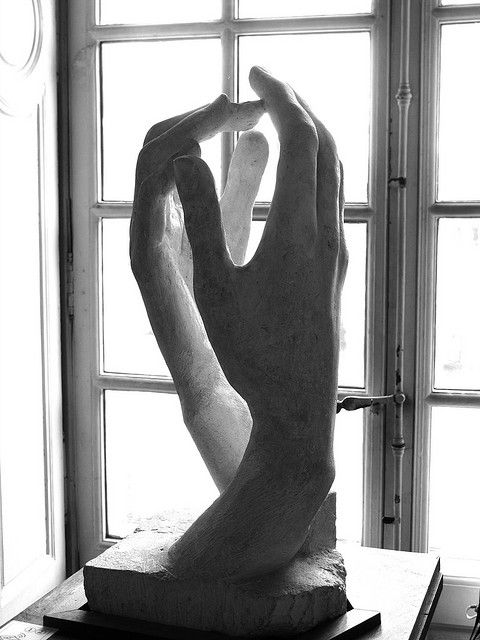Dear Integral Meditators,
This weeks article gives some simple mindful suggestions for bringing real stability to your life, literally, and even when under pressure!
Also, I recently discovered that a TedX talk I gave on mindfulness is up on the web. Its a pretty decent 15min primer on the vision of engaged and integral mindfulness, do have a view!
In the spirit of castle-like awareness!
Toby
1:1 Coaching offer until the end of August
On a personal level, if you are looking to meet the rest of the year with a renewed strategy for developing your work-life balance, and for dealing with your stress more effectively, until the end of August I am offering a 15% price reduction in myHandle stress and have peace of mind 1:1 coaching sessions.
 Making your body your castle
Making your body your castle
Your body and your senses are your most basic, simple and stable objects of mindful awareness. They are basic and simple because they are non-conceptual, solid experiences that we encounter when we observe the physical dimension of our present moment awareness. When your mind is focused on your body and senses quite naturally it starts to feel more stable, because our body is generally much less changeable, quick and unpredictable than our thoughts and emotions.
Your body and senses are the easiest objects to train in mindfulness to begin with. This is because they are obvious and easy to find, even if we are not familiar with mindfulness practice. Everyone can become aware and focus on their body, or the sounds around them without too much trouble. Because of this they are an obvious place to begin building mindful concentration and focus. Once you are familiar with focusing on the body and senses, you can then go onto focus on thoughts, feelings and mental images as objects of mindfulness with much greater ease and success.
Solid mastery of mindfulness of the body and senses will give you tremendous stability under mental and emotional pressure. This is because they give your mind a stable anchor in the moment. Rather than feeling like you are drowning in an uncontrollable mass of thoughts and feelings, you will gradually start to feel more and more comfortable under pressure, because your attention to your body gives you a deeper sense of presence in the moment that enables calm.
Make your body like your castle
There is an old saying that goes something like “An Englishman’s home is his (or her) castle”. The gist of this is that our physical home is a refuge where we can retreat from the world, gather our strength, heal our wounds and feel safe. If we have a physical space to retreat to it is of great value to us in terms of our peace and wellbeing. I often think about my own body as being like my ‘castle’ as I go around my day facing various challenges. As long as a part of my attention is centered in my body I have a place where I can feel strong, relaxed and solid, even if there are difficult emotions, uncertainties or negative thoughts going on.
If you like you can bear this image in mind as you cultivate your own mindful attention of your body and senses. Practice making them ‘castle-like’; solid, immense and stable amidst the whirlwind of your emotions, thoughts and activities. If you are a visually minded person, when you are sitting in meditation you might even like to imagine yourself in your very own castle, safe and calm within its strong walls. You can them bring that feeling into your body in the present moment and cultivate that feeling of physical strength and solidity.
Enhancing your bodily comfort and wellbeing
As you cultivate your awareness in this way, you will also start to notice tension, fatigue or discomfort in the body. As a result, you will naturally start to let go of that tension and look after your body better. So not only will you find more mental stability, but you will also enhance your wellbeing on a physical level!
© Toby Ouvry 2018, you are welcome to use or share this article, but please cite Toby as the source and include reference to his website www.tobyouvry.com
Upcoming Courses at Integral Meditation AsiaOngoing on Wednesday’s, 7.30-8.30pm – Wednesday Meditation Classes at Basic Essence with Toby
Ongoing on Tuesday evenings, 7.30-8.30pm – Tuesday Meditation Classes at One Heart with Toby (East coast)
Begins 14/15th September – Effortless effort – Insight meditation for self-healing and transformation – a five week course
Monday 6.15-7.15 & Wednesday 12.15-1.15 – Integral Meditation classes at Space2B on Stanley Street
Saturday 8th September & 29th September 9-10.15am – Qi Gong workout and meditation class
Tues 18th & Weds 18th September, 7.30-8.30pm – Autumn equinox balancing & renewing meditation
Saturday 22nd September, 10.30am-5pm – Shamanic Mandala Meditation and Art Workshop
Saturday 29th September, 2-5pm – OneHeart Open Day ‘Activating your journey of healing and empowerment’.
Integral Meditation Asia
Online Courses * 1:1 Coaching * Books * Live Workshops * Corporate Mindfulness Training *Life-Coaching * Meditation Technology








